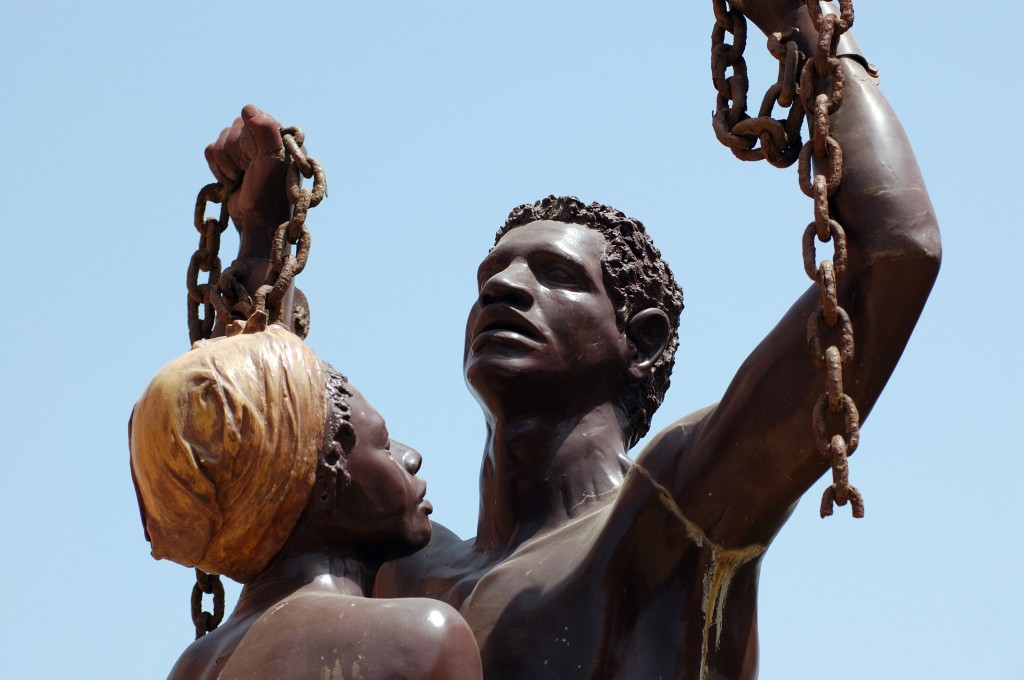
© Faberfoto | Dreamstime.com
I haven’t seen the new film, “Lincoln,†yet (and with what may be a pinched nerve making it hard to sit for long periods of time, who knows when I will). Though I know the performances are stellar and writer Tony Kushner’s fame is arguably deserved, this review by Kate Masur in the New York Times has given me pause. Some highlights:
But it’s disappointing that in a movie devoted to explaining the abolition of slavery in the United States, African-American characters do almost nothing but passively wait for white men to liberate them. For some 30 years, historians have been demonstrating that slaves were crucial agents in their emancipation … Yet Mr. Spielberg’s “Lincoln†gives us only faithful servants, patiently waiting for the day of Jubilee.
This is not mere nit-picking. Mr. Spielberg’s “Lincoln†helps perpetuate the notion that African Americans have offered little of substance to their own liberation. While the film largely avoids the noxious stereotypes of subservient African-Americans for which movies like “Gone With the Wind†have become notorious, it reinforces, even if inadvertently, the outdated assumption that white men are the primary movers of history and the main sources of social progress.
Masur isn’t the alone in her assessment. In a story on NPR whose opening lines point out how dangerous it is to let cinematography shape our image of history, Lincoln biographer Ronald White agrees.
The following debate over the op-ed ensued on my Facebook page (I’ve added links to what I’ve said before or reference and edited the comments for grammar):
FRIEND 1: I see this side. However, the movie is called “LINCOLN.†And they had to cut the script from 900 pages! 900 pages to 400. You can’t please everybody. And you can’t fit everything in. Especially in a movie that is in essence about a single man.
ME: You know, I’ve said that in the past to justify period movies that don’t give black people enough credit, but those were about fictional people. This is about a REAL U.S. president. Not enough people read books for me to not be concerned about and disappointed with this inaccurate depiction of history.
FRIEND 1: I don’t think it’s meant as an “accurate depiction.” It is the final four months of Lincoln’s life. Hence the name “Lincoln.” I’m sure there are lots if things from the 500 cut pages they would have liked to have kept.
 ME: Maybe they should’ve done it two parts. Or three.
I know it’s not meant to be accurate. I’ve said that, too. But it being about real people makes this different for me. It also comes at yet another time when conservative white men are calling people of color lazy, takers, people who want stuff and get gifts, etc. Not showing black people played a significant role in their own freedom just reinforces that, ‘we generous, righteous white men have given you people enough, now get off your lazy asses and stop taking what’s ours’ bullshit narrative. Spielberg and Kushner couldn’t have known about the timing (I add now, they couldn’t have known what the 2012 election results would be, or that people would react by petitioning to peacefully secede from the United States, or that “Lincoln†would open the same week as Colorlines’ Facing Race conference for that matter), but I also doubt there was any non-white person with the power to have a say in the film’s production, either.
FRIEND 2: The question becomes why defend an inaccurate depiction of African Americans or any other people for that matter? What is threatening about seeing African Americans as active, initiative and key advocates of the freeing and recognition of African American humanity and the call for those acting as oppressors (not to mention serial rapists, abusers, terrorizers) to put down their inhuman behavior and reclaim their own humanity by abolishing slavery?
“Friend 2†presents great questions. My defense in the past, and which I’ll probably use again, has been freedom of artistic expression and valuing fiction for what it is—imagination and craft—rather than insisting it fit history, a field shaped and colored by the past’s winners. Yes, who has the authority to greenlight a project matters, but don’t depend on Hollywood for accuracy, especially if the truth isn’t a good story.
But in this case, the truth is a fantastic story. Good screenplays depend on patterns of people overcoming the odds through unheardof obstacles. To answer the second question, that isn’t threatening. Seeing one group of humans demanding other people be human isn’t threatening, but African Americans and other non-white people standing up for universal humanity is seen as removing the “freedom†of others—others who believe they deserve freedoms that people not like them don’t. It’s up to the oppressors to realize they damage their own humanity, but it’s up to the oppressed to take them to task until they do. And it’s up to the watchful public, even the acadmecians who over-analyze everything, to remind us that removing agency also removes humanity, even if that wasn’t the storyteller’s intent.

Miss Mariam,
I hope you get your back together. I’ve been there and still have, I have a
tins unit it does help. God bless
carole denise
Carole,
Thanks. I’m getting there.